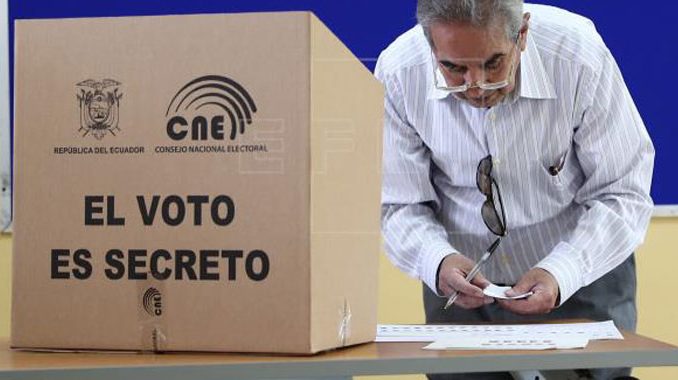
The agency expects to invest more than USD 2 million in biosecurity implements for the members of the voting receiving boards.
The National Electoral Council (CNE) enabled 611 new electoral precincts for the presidential elections of February 2021. This initiative would be carried out with the intention of providing greater security to voters and thus avoiding absenteeism.
The more than 13 million voters have to review what their new polling place is, since, with the authorization of more precincts, there was also the relocation of voters in different polling stations.
Manabí, Guayas and Cotopaxi are the provinces with the highest increase in electoral precincts, which went from 3,665 to 4,276 nationwide. Among these new electoral precincts are universities, coliseums and private and fiscal educational units.
The CNE reports that this decision had already been planned since the beginning of the pandemic in March and April. Another process reported by the institution is the purging of the electoral roll, for which there are fewer 39,917 voting receiving boards, approximately 300 less than in 2019.
Diana Atamaint, president of the CNE, stated that the organization will allocate more than USD 2 million to implement biosecurity measures in all the electoral precincts authorized for the 2021 elections. This money will be invested in masks and face shields for the members of the polling stations Furthermore, the institution will invite each voter to bring his or her pen.
On the other hand, in Pichincha only 26 new electoral precincts were enabled, because most of the institutions such as schools and colleges were already 100% occupied.
The CNE hopes that in the coming days the Ministry of Finance will approve and deposit the budget for the 2021 elections, which exceeds USD 110 million.

Be the first to comment